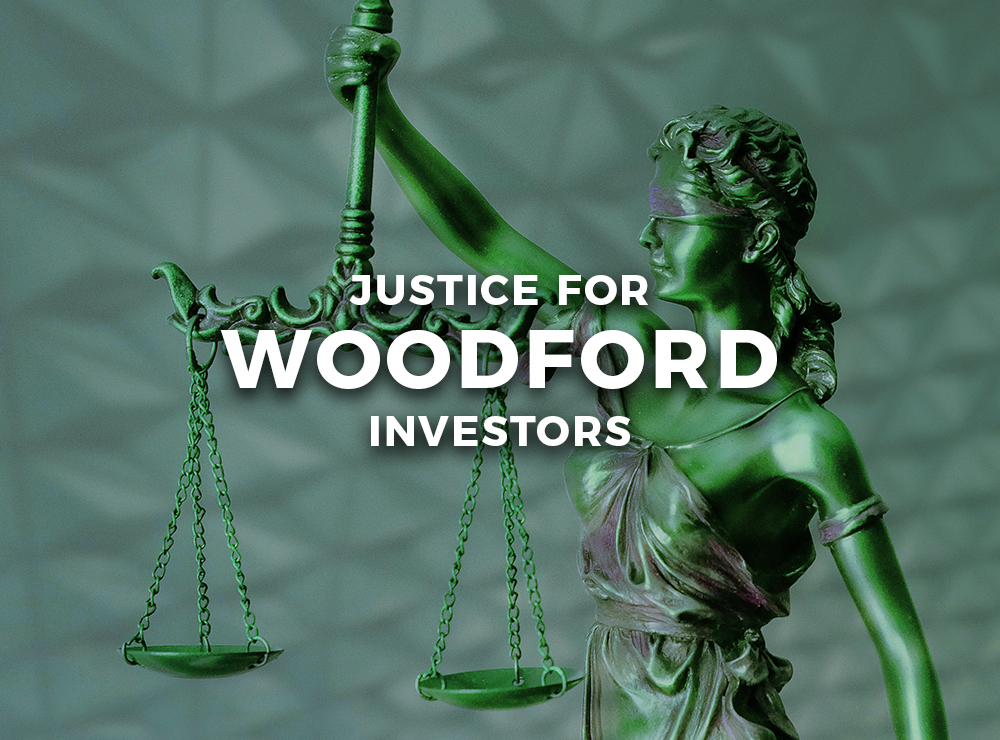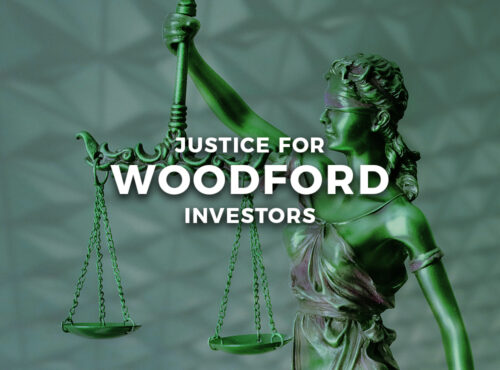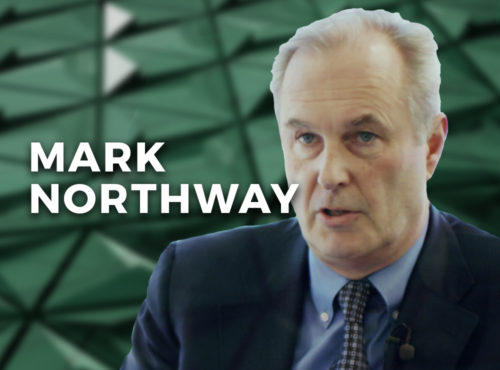
A new book on the Neil Woodford scandal is about to be published. Opinions are divided on exactly what went wrong, but the book, When the Fund Stops, provides some helpful clues.
In Part 1 of his interview with Robin Powell, the book’s author, DAVID RICKETTS, explained how the large number of illiquid stocks in Woodford’s funds eventually proved his undoing.
In Part 2, Ricketts discusses the role played by third parties including Hargreaves Lansdown, and the company responsible for overseeing the funds, Link Fund Solutions. Could they have prevented the funds’ collapse?
David, in your book you describe Hargreaves Lansdown as Neil Woodford’s “loudest cheerleader”. How big a part do you think they played in this saga?
They undeniably helped to create a buzz around Neil Woodford, particularly around the time that his fund was launched.
Hargreaves Lansdown had this agreement with Woodford which meant they would be the cheapest venue for people to invest in his Equity Income fund. Some of the promotional material around the fund launch certainly gave the impression that Woodford was the best thing since sliced bread.
There was a lot of promotion around Woodford the fund manager, and the brand of Woodford, and we had the likes of Peter Hargreaves, one of the co-founders of Hargreaves Lansdown, saying that he would invest his own personal wealth in Woodford’s fund.
Speaking to people who formerly worked at Hargreaves, what they said to me was that this was one of the biggest promotional drives, or marketing campaigns, they’d ever seen. The listing of Royal Mail several years earlier was another big promotion for Hargreaves Lansdown, but the Woodford campaign blew that out of the water. They threw absolutely everything at it.
The fact that the Woodford Equity Income fund was also included on their buy list — the Wealth 150, as it was known at the time — also helped generate a lot of interest.
Speaking to investors who went into Woodford’s fund, you can probably say with some certainty that they were drawn in by some of the marketing. The Wealth 150 list is Hargreaves’ list of preferred funds, backed by what they say is a rigorous research process. If you’re a DIY investor with Hargreaves, trying to whittle down thousands of funds to a select few, you’re reliant on these buy lists to a certain extent.
In the book you quote a former Hargreaves staffer who suggests there was a lack of “belt and braces” analysis around Woodford, despite all the money that people were investing. That’s quite worrying, isn’t it?
There was an expectation from a lot of people who worked at Hargreaves Lansdown that Woodford would simply continue his run of success from Invesco and just move that track record across. It goes back to the fact that the focus was too much on Woodford the fund manager, and not his new fund.
I suppose one could argue that Hargreaves saw he had a proven track record over 20 years. He wasn’t a young upstart. But the fund wasn’t given the same level of scrutiny as perhaps other new fund launches would have been. It may have been just a case of going through the motions.
What did become clear in my research for the book was that Hargreaves did start to ask questions about some of the illiquid holdings, certainly as the fund was reaching its suspension.
But I think the question is, why were those questions not being asked earlier on? And while those questions were being asked, why was that fund still on the Wealth 150 list, or the Wealth 50 list as it was later called?
As authorised corporate director, Link Fund Solutions had a responsibility to investors to ensure their money was being sensibly invested and that they could take their money out if they wanted to. It appears that Link failed investors on both of those counts.
This is another interesting element of the whole story. Link, as you say, was the authorised corporate director. It sounds like a very unglamorous and unsexy role, but it’s a crucial role in the world of financial management. They have a responsibility to ensure that the fund manager is fulfilling its duties, and treating investors fairly, and that the fund is sticking to the rules.
One of the key triggers for the suspension was the fact that one of Woodford’s largest clients, Kent County Council’s pension fund, took the decision that they wanted their entire investment back, which at the time I think was roughly £250million. That was a huge sum of money to pull from a fund in one go.
In the run-up to the fund being suspended in June 2019, conversations were taking place between Link and Woodford about what would happen to the fund if Kent County Council were to redeem that holding. Could the fund continue continue in the way that it was? What would the liquidity profile look like? Could the fund offer Kent a managed redemption, so rather than pulling the whole holding in one go, could it be staged over several months to enable the fund to continue operating so it wouldn’t be such a blow to other investors?
So a lot of conversations were taking place behind the scenes, and from speaking to people who worked with Woodford at the time, that decision by Link to suspend the fund was a surprise to them. From what I’ve been told, the idea of the fund’s suspension wasn’t mentioned in conversation right up to the weekend before that. So the suspension was always a possibility but I think it wasn’t a measure that Woodford was expecting.
Link has come in for a lot of scrutiny over how the suspension was handled, and obviously they are now responsible for offloading the assets that are left in the fund, and a lot of questions have been raised about that. Have these assets been sold off at fire-sale prices? Could a better price have been negotiated for some of these assets? The whole process of paying back investors from that fund has certainly come in for scrutiny as well.
What about the Financial Conduct Authority? Should it have seen this coming and asked more questions earlier on? Did the FCA let investors down?
We’re still waiting to hear from the FCA about the findings of the investigation that they launched into the events leading up to the fund suspension. So far they have failed to provide any indication of what this investigation might include or when it will be published.
But the FCA certainly gave the impression that they failed to act on some of the red flags as soon as they should have done. The fact that they only became aware of Woodford’s decision to list some of the unquoted assets in the Equity Income fund on the Guernsey Stock Exchange after reading press reports — that didn’t go down well at all with the Treasury Committee and Nicky Morgan, who was the chair of the committee at the time.
It emerged shortly after the Equity Income fund was suspended that the Guernsey exchange had tried to contact the FCA a couple of months previously to discuss the concerns it had over the valuation of some of these unquoted assets, But a detailed discussion didn’t take place between the two sides until the fund was actually suspended. There were various reasons for that, one of them being that the communication was picked up by a junior member of staff at the regulator. So the FCA haven’t exactly covered themselves in glory.
Most recently, there have been two reports published looking at failures at the FCA. One was how they oversaw the collapse of a quant fund in 2012, which left over 1200 investors nursing losses of more than £100million. The report concluded that the FCA could have acted in a more effective way to protect investors in that fund.
Another report looked at the FCA’s role in the collapse of London Capital & Finance in 2019. Again, the report uncovered serious failings about how the FCA regulated this entity, which included a failure to act on some allegations that were made by third parties.
What I think will be interesting is to watch what comes next, both from the FCA, but also from politicians, (on Woodford). Certainly the impression that one got from the Treasury Committee was that the FCA were asleep at the wheel.
Do you think that regulators, politicians, journalists and so on have learned from the Woodford scandal? Has it changed opinions about the “star manager” culture? Or will we see a similar episode in the future?
I think lessons have been learned, to some extent. The star manager culture that existed during Neil Woodford’s heyday is certainly on the way out. The focus on one individual is certainly being played down. When you speak to investment management firms now, they talk about the process of having a team in place. Nobody wants a fund manager holding all the assets and suddenly announcing a departure, and then the money goes out the door with them. That’s a key risk to any business.
To their credit, Hargreaves Lansdown have certainly overhauled their own internal processes when it comes to their buy list. The Wealth 50 list has now been called the Wealth Shortlist, and that has an improved risk monitoring process, which looks more closely at liquidity.
Interestingly, one of the things that came out when I was doing research on the book is that they actually focus a bit more attention now on the media profile of fund managers. Perhaps one of the things that caught people off-guard was the fact that the coverage that Woodford had probably exacerbated the problems for him. When these companies that he was investing in announced profit warnings, there was lots of attention given to Woodford and his investment process, and I think a lot of investors did get spooked by that coverage and pulled money as a result of reading stuff in the newspapers.
Could this happen again? Until we get a firm answer from the FCA about any firm action it might take, it’s hard to say. But there are certainly still people in the fund management sector who are on a pedestal and are seen as “star performers”.
ROBIN POWELL is editor of The Evidence-Based Investor.
The original interview has been slightly edited for brevity and clarity.
When the Fund Stops by David Ricketts is due for release by Harriman House on 26th January.
WOODFORD INVESTOR?
Did you invest with Neil Woodford?
The law firm Harcus Parker is bringing a collective action against Link Fund Solutions on behalf of Woodford investors.
If you hold, or have held, shares in the LF Equity Income Fund (formerly the LF Woodford Equity Income Fund) (the ‘Woodford Fund’) either directly, through an intermediary or in your SIPP, you may be entitled to claim for compensation.
To find out more, go to WoodfordClaim.com. You can join the claim by filling in your details.
FOLLOW THE CAMPAIGN
The Evidence-Based Investor is running a campaign called #JusticeForWoodfordInvestors. We’re going to be keeping investors abreast of the latest developments and explaining what their options are. To follow the campaign, search for the hashtag #JusticeForWoodfordInvestors on Twitter, Facebook or LinkedIn.
© The Evidence-BasedInvestor MMXXI








